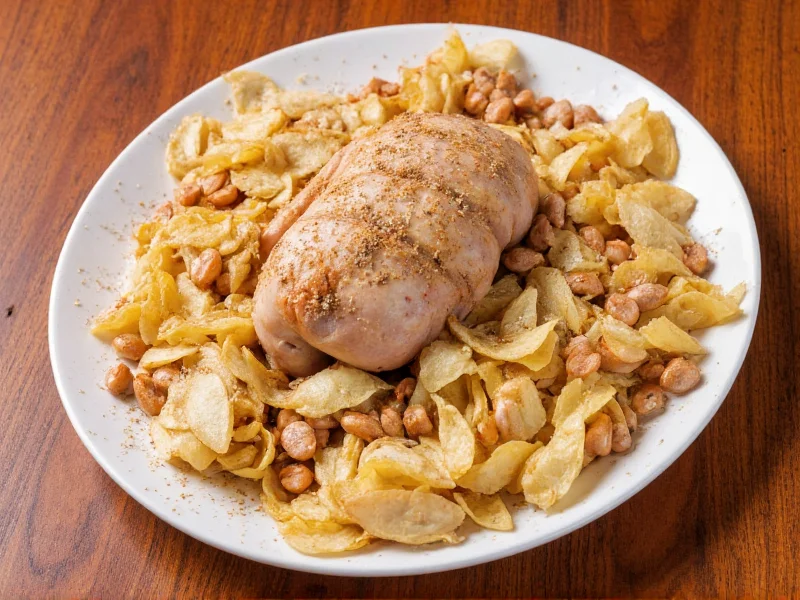The best immediate substitutes for poultry seasoning include a homemade blend of equal parts sage, thyme, and rosemary, or a simple combination of 3/4 teaspoon thyme plus 1/4 teaspoon each of sage and marjoram per teaspoon of poultry seasoning needed. For quick alternatives, use herbes de Provence, Italian seasoning, or a basic mix of thyme and sage.
Understanding Poultry Seasoning and Its Essential Components
Poultry seasoning isn't just a single herb but a carefully balanced blend typically containing sage, thyme, marjoram, rosemary, black pepper, and sometimes nutmeg or allspice. This versatile spice mix enhances chicken, turkey, and other poultry dishes while also working well in stuffing, gravies, and vegetable recipes. When you need a poultry seasoning substitute, understanding these core components helps you create effective replacements that maintain the dish's intended flavor profile.
Why You Might Need a Poultry Seasoning Substitute
Several common situations require finding alternatives to traditional poultry seasoning. You might have run out of the pre-mixed blend, need to accommodate dietary restrictions, want to avoid certain ingredients like garlic or onion powder, or simply prefer using fresh herbs. Some commercial blends contain anti-caking agents or fillers that home cooks prefer to avoid. Understanding these scenarios helps you select the most appropriate poultry seasoning replacement for your specific cooking needs.
Top 5 Effective Poultry Seasoning Substitutes
When searching for what to use instead of poultry seasoning, these five options deliver reliable results across various recipes:
1. Homemade Basic Blend (Best All-Around Substitute)
Create your own poultry seasoning replacement by combining:
- 1 tablespoon dried sage
- 1 tablespoon dried thyme
- 1 tablespoon dried marjoram
- 1 teaspoon dried rosemary
- 1 teaspoon black pepper
- 1/2 teaspoon nutmeg (optional)
Mix thoroughly and store in an airtight container. Use 1 teaspoon of this blend for each teaspoon of commercial poultry seasoning called for in your recipe. This homemade poultry seasoning mix gives you complete control over ingredients and freshness.
2. Thyme and Sage Combination (Simplest Alternative)
When you need a quick poultry seasoning substitute without marjoram or rosemary, combine 3/4 teaspoon dried thyme with 1/4 teaspoon dried sage per teaspoon of poultry seasoning required. This basic poultry seasoning replacement works particularly well for roasting whole birds where sage traditionally dominates the flavor profile.
3. Herbes de Provence (Mediterranean Twist)
Herbes de Provence makes an excellent poultry seasoning alternative with its similar herb composition, though it typically contains lavender which adds a distinctive floral note. Use a 1:1 ratio when substituting. For traditional American recipes, consider removing any lavender flakes from your herbes de Provence before using as a poultry seasoning replacement.
4. Italian Seasoning (Readily Available Option)
Most pantry-stocked Italian seasoning blends contain many of the same herbs found in poultry seasoning, though they often include oregano and basil which aren't traditional in poultry blends. Use Italian seasoning as a poultry seasoning substitute at a 1:1 ratio, but reduce other herbs in your recipe slightly to balance the additional flavors.
5. Individual Herb Adjustments (Precision Substitution)
For recipes where poultry seasoning plays a supporting rather than starring role, consider adjusting individual herbs:
| Original Recipe Call | Substitute Measurement | Best For |
|---|---|---|
| 1 tsp poultry seasoning | 1/2 tsp thyme + 1/4 tsp sage + 1/4 tsp marjoram | Roasted chicken, turkey |
| 1 tsp poultry seasoning | 3/4 tsp thyme + 1/4 tsp sage | Stuffing, dressing |
| 1 tsp poultry seasoning | 1/2 tsp sage + 1/4 tsp thyme + 1/4 tsp rosemary | Gravies, sauces |
| 1 tsp poultry seasoning | 1 tsp herbes de Provence (lavender removed) | Mediterranean-inspired dishes |
Special Considerations for Specific Dietary Needs
When seeking allergy-friendly poultry seasoning alternatives, carefully check commercial blends for potential allergens like wheat fillers or garlic powder. Many store-bought versions contain these ingredients. For gluten-free requirements, always verify the blend is processed in a dedicated facility. Those avoiding nightshades should confirm no paprika or cayenne has been added to the commercial blend.
How Substitutions Affect Different Dishes
The impact of your poultry seasoning replacement varies by dish type. In roasted whole birds, the herb blend primarily affects the skin and surface flavors, so substitutions have less impact on the overall taste. For stuffing or dressing recipes where poultry seasoning permeates the entire dish, more precise substitution ratios matter. In soups and stews, where flavors meld over time, you can be more flexible with your poultry seasoning substitute.
Avoiding Common Substitution Mistakes
Many home cooks make these errors when replacing poultry seasoning:
- Using too much sage, which can overpower other flavors
- Substituting individual herbs without adjusting ratios
- Not accounting for the salt content in commercial blends
- Using fresh herbs with the same measurements as dried
- Adding additional salt without considering the seasoning blend's sodium content
Remember that dried herbs are more concentrated than fresh—use three times the amount of fresh herbs if substituting in your poultry seasoning replacement.
Storing Your Homemade Poultry Seasoning Alternatives
Properly stored, your homemade poultry seasoning mix will maintain peak flavor for 6-12 months. Keep it in an airtight container away from heat and direct sunlight. Glass jars with tight-sealing lids work better than plastic containers for preserving herb potency. Label your blend with the creation date, and consider making smaller batches to ensure maximum freshness. For extended storage, keep your poultry seasoning replacement in the freezer where it will retain flavor for up to 18 months.











 浙公网安备
33010002000092号
浙公网安备
33010002000092号 浙B2-20120091-4
浙B2-20120091-4